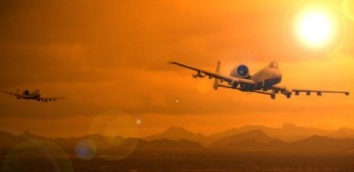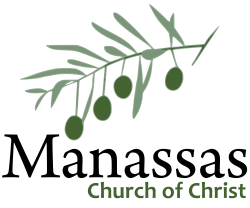
The shepherd’s task appears simple. Find some decent grazing land with water nearby and a safe fold for the night. Scan the flock occasionally for the one that’s about to wander and, if necessary nudge back toward the flock. But that image is deceptive. Not all pastures are equal in quality or ready access. Nor are grazing and water always convenient to one another or a secure fold easily accessible for the night. Finally, the sheep tend to stray far more often than one might expect and apparently for no good reason.
Does this sound like an elder? It should. A job that sounds deceptively simple is actually much, much more. The church flock may or may not be eager to graze Biblical pastures. It seems there significant portions of the flock are actively wandering from Biblical pastures. Danger always lurks nearby. Perhaps there is no greater frustration and heartache for a shepherd and protector than finding himself powerless to prevent serious injury to one of the flock . . .
. . .  It was the same almost every day. We flew our A-10 attack aircraft in lazy circles, thousands of feet up, around the small group of soldiers or Marines we were charged with protecting. We always flew in pairs, one pilot in each aircraft, scanning with our eyes and with sophisticated infrared sensors, looking for dangers to our charges. We couldn’t really call ourselves shepherds. We weren’t directing their efforts on the ground. They chose the direction of travel and destination. We couldn’t choose the pasture if you will. They frequently chose to take the more dangerous route in search of the enemy. They were nonetheless, our charges. We considered ourselves their protectors, prepared to pounce quickly, lethally and precisely on any threat to our soldiers. Danger could come from multiple directions, from the lush, green fields of the river valley they traversed or from the barren rock ridges rising thousands of feet above the valley floor. Both options offered the predators advantages. The verdant river valley kept the enemy closer to our soldiers and offered excellent cover and concealment and often the shelter of living compounds with walls and roofs. The rocky ridges offered the advantage of the high ground overlooking all in the valley but concealment could be more difficult and the greater distance reduced the effectiveness of their weapons. Finally, in anticipation of the soldiers’ arrival in an area the enemy would plant improvised explosive devices along roads, tracks, and trails to be detonated remotely on command or detonated simply by the weight of a vehicle tire or human foot.
It was the same almost every day. We flew our A-10 attack aircraft in lazy circles, thousands of feet up, around the small group of soldiers or Marines we were charged with protecting. We always flew in pairs, one pilot in each aircraft, scanning with our eyes and with sophisticated infrared sensors, looking for dangers to our charges. We couldn’t really call ourselves shepherds. We weren’t directing their efforts on the ground. They chose the direction of travel and destination. We couldn’t choose the pasture if you will. They frequently chose to take the more dangerous route in search of the enemy. They were nonetheless, our charges. We considered ourselves their protectors, prepared to pounce quickly, lethally and precisely on any threat to our soldiers. Danger could come from multiple directions, from the lush, green fields of the river valley they traversed or from the barren rock ridges rising thousands of feet above the valley floor. Both options offered the predators advantages. The verdant river valley kept the enemy closer to our soldiers and offered excellent cover and concealment and often the shelter of living compounds with walls and roofs. The rocky ridges offered the advantage of the high ground overlooking all in the valley but concealment could be more difficult and the greater distance reduced the effectiveness of their weapons. Finally, in anticipation of the soldiers’ arrival in an area the enemy would plant improvised explosive devices along roads, tracks, and trails to be detonated remotely on command or detonated simply by the weight of a vehicle tire or human foot.
There was much to watch for even though the scene could appear deceptively peaceful. The lushness of the irrigated river valleys rivaled the most productive lands in America. But that lushness always ended where the irrigation channels ended and the transition could not be more abrupt. You could take two steps and go from lush life to dry barrenness with several inches of dust the consistency of fine flour. It was easy to bury and hide IED’s in the desert tracks and trails. It was just as easy to hide humans with rifles and rocket propelled grenade launchers in the green fields and along the tree lines.
Many days nothing would go wrong. It could get mundane, even boring. We would land after five or more hours of flying in lazy circles having done nothing more than peer into tree lines and compounds and along rocky ridges.
But then there were other days.
They warily edged their vehicles up to the edge of the Helmund River, the same river Alexander “the Great” crossed on his way to a place now called Kandahar. The fields were particularly lush and the barren ridges particularly high and close by. We were watching and scouring, high places and low places, lush and barren, inside compound walls and out. It appeared eerily quiet to our eyes and sensors and the soldiers commented over the radio they sensed the same quiet.
The gunfire started without warning and everyone on the ground ducked for cover while also looking about for the flashes from the muzzles of enemy guns. That was the best way to locate the source of enemy fire and direct any return fire. We could hear the stutter of our automatic weapons as we communicated over the radios. We could not locate the enemy fire. They were hidden in the tree lines of the green belt. We certainly could not indiscriminately throw down bombs or bullets. There were likely non-combatants and children down there somewhere plus the area where the enemy was hiding was simply too large. The soldiers managed to get our eyes on to a tree line hiding the enemy and we could see a few of the muzzle flashes. Under the direction of the ground commander, a young captain in his late twenties, we swooped in and shot our cannon, an actual Gatling gun. We stitched several hundred rounds of 30 millimeter shells, each the equivalent of a small hand grenade into the tree line. As smoke roiled up from the trees the gunfire ceased. We, as the protectors felt immensely proud of ourselves. As things quieted down the captain stepped out of his armored vehicle with its restricted visibility to survey the situation. Other soldiers were already out of their vehicles and in hasty fighting positions prepared to immediately respond to a new threat but all remained quiet. As the captain surveyed the valley and some nearby compounds he stepped away from his vehicle to get a better view. We knew none of this as continued to scour the compounds, the fields, and the ridges. We didn’t spend too much time watching the soldiers; we watched the areas holding potential threats. Suddenly the radios erupted with our call sign. We glanced over to the friendly location and saw a ball of smoke and dust rising from near a vehicle. The captain had stepped on an IED. He lay there with his legs shattered bleeding into the fine powdery dust. The soldiers swung into action, performing battlefield lifesaving drills to stem the loss of blood and stabilize the captain sufficient for a helicopter to come and retrieve him back to hospital. Within an hour he was in the hands of a field surgeon. Within six hours he was in a state-of-the-art hospital with specialized surgeons that would rival any in the world. I know, I visited the captain the next day although he didn’t know I was there. We know how to treat battlefield casualties. But I’m ahead of myself. Before the hospital and before the helicopter, we, the supposed shepherds and protectors, continued circling overhead. We went strangely quiet. There was little to say. In spite of our best efforts, unmatched technology, and expensive training we were powerless to stop disaster from striking. We were there to deter the enemy but he was undeterred. We were there to protect and we failed to protect . . .
As shepherds of the flock we can’t keep them in the fold. They must go out and graze.
As shepherds of God’s spiritual flock we should want to guard and protect. We should want to hold them close and prevent Satan from intruding. Shepherds understand protection includes doing battle when required. However, in the end the flock must leave the fold and venture into the world. They must go out and graze. When they do the world intrudes; Satan intrudes and the flock takes spiritual casualties. Perhaps as shepherds we should repeat this to ourselves regularly, “members of the flock will get hurt.” Not because we want it to happen, but because it can help remind us what comes next; the hard part. We must treat our casualties.




